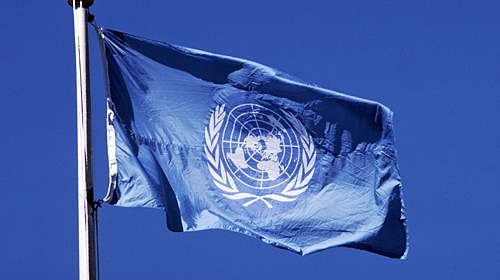
When the reviews U.S. compliance with the International Covenant on Civil and Political Rights (ICCPR) this October, the review will tackle many of the human rights violations plaguing Florida. Last week the committee released its , which will form the basis for the U.S. review, and demanded answers to questions regarding U.S. laws and policies in areas such as juvenile solitary confinement, felon disfranchisement, and discriminatory enforcement of criminal law. These human rights violations severely impact the lives of Floridians, but often evade court challenges or other domestic mechanisms of review.
The Human Rights Committee is a body of experts established to monitor implementation of the ICCPR, a treaty outlining the U.S.'s obligation to protect and preserve a wide range of human rights. The ICCPR, which the United States ratified in 1992, broadly protects the right to human dignity; equality before the law; freedom of speech, assembly and association; freedom from torture, ill-treatment and arbitrary detention; and the rights of racial and ethnic minorities. The U.S. submitted a to the committee in December 2011 outlining its adherence to treaty obligations. It must now respond to the committee's specific questions, generated in part from . The committee will then issue observations and recommendations regarding U.S. non-compliance with treaty obligations.
Juvenile Justice
The committee's review compels the U.S. government to discuss topics it may otherwise seek to avoid. For example, ICCPR review will spark an urgently needed discussion about protecting child prisoners. The committee will review a broad range of issues affecting incarcerated children: their extended isolation in prisons, their prosecution in adult criminal courts, their housing in adult jails, and the life without parole sentences still meted out for crimes they commit before they have fully developed.
It is widely recognized that international law prohibits the use of solitary confinement on children, as by definition . Florida's extended solitary confinement of prisoners, particularly vulnerable prisoners such as children and those suffering from mental illness, bucks this emerging consensus. Yet Florida persists in its use of isolation. As we explained in a blog post titled , prisoners held in solitary confinement in Florida are detained in nearly complete isolation. They are only entitled to leave their cells three times a week to take a shower, and, after 30 days, for an additional three hours per week to exercise. In Florida, where there are more children sent to adult prisons than in any other state, children endure long periods without human contact, exercise, educational instruction, communication with their families or rehabilitative services. The Florida Legislature has thus far declined to pass the to improve conditions. And the Prison Reform Litigation Act makes it difficult for inmates to challenge their solitary confinement through U.S. courts.
Voting Rights
The committee will also review the infrastructure of Florida's notorious elections – characterized by voter suppression laws and the exclusion of over a million citizens with prior felony convictions from the democratic process. As we describe in our , Florida permanently disfranchises such citizens unless they receive executive clemency, which is only granted through the Board of Executive Clemency's unfettered discretion (and rules governing the rights restoration process seem to ). Florida's disfranchisement rate remains highest among the 50 states, and disfranchisement impacts African American voters at more than twice the rate of non-African American voters.
The discretionary clemency process is difficult to challenge in court. Thankfully, the ICCPR requires that deprivation of voting rights based on a criminal conviction should be "objective and reasonable" and that suspension of rights should be "proportionate" to the offense. The committee's review will give us an opportunity to highlight Florida's dissonance with the rest of the country and democratic world. The U.S. will need to provide answers for Florida's backward election policies.
Other U.S. Policies Up for Review
The committee will review a range of other systematic race-based denials of equality. The U.S. must explain its gushing school-to-prison pipeline, a set of misguided policies that use criminal law to address school discipline and disproportionately impact African-American students and students with disabilities. For the first time, an international body will look at gun violence through racial disparities in the application of Stand Your Ground laws. Florida will finally have to explain to an independent arbitrator the broad grant of immunity to those who claim to use deadly force in self-defense.
The ICCPR review process will give us an opportunity to seek answers to injustice on a broad range of issues. Perhaps as significant, unlike the courts, the Human Rights Committee allows for broad public engagement and participation. Last December, through the which the ACLU is co-chairing, dozens of non-governmental organizations, requested that the committee address issues of local concern. Civil society will now have another opportunity to submit information to the committee in the form of "shadow reports" to supplement information offered by the U.S. government.
Like many social justice organizations, the ACLU of Florida, working in collaboration with the national ACLU Human Rights Program, will continue to engage in this process to raise issues that impact the lives of millions of people in the United States. Respecting our international human rights obligations falls squarely and equally on the federal and state governments, and we hope they will use the U.S. review as an opportunity to make human rights a reality for all. We will hold their feet to the fire and look forward to the U.S. appearance before the committee in October.
Learn more about human rights and other civil liberty issues: Sign up for breaking news alerts, , and .


